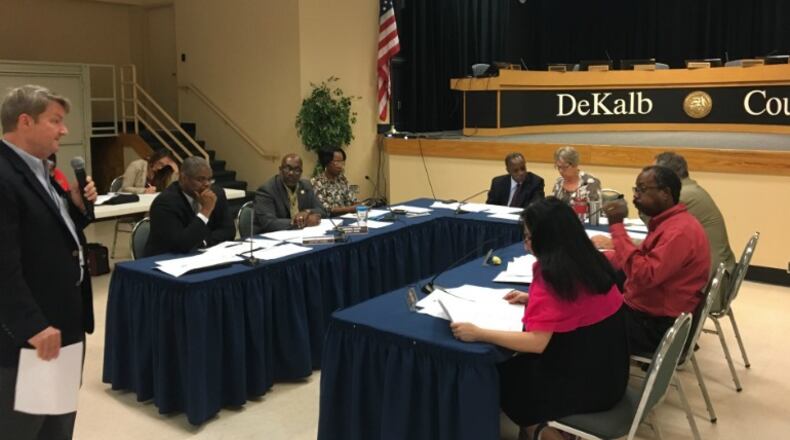This time around, DeKalb County commissioners say they’ll avoid the problems that doomed last year’s effort to raise sales taxes to repair crumbling roads.
The DeKalb Commission on Thursday moved closer to putting the issue on November's ballot as they began to coalesce around a list of transportation, public safety and infrastructure projects that would be funded by a sales tax increase, from 7 percent to 8 percent.
Unlike last year, commissioners aren't arguing over whether to build a new government center, which is no longer among the projects under consideration. They're also not worried about ambiguous wording in state law that could've triggered an unrelated tax increase, an issue that was corrected by the Georgia General Assembly this year.
“DeKalb will get it right this time,” said Commissioner Kathie Gannon, the board’s presiding officer. “We’re building consensus, step-by-step.”
The sales tax would raise nearly $100 million a year over the next five years, bringing in a total of $477 million that would be spent primarily on repairing the county’s worst roads, according to documents distributed at Thursday’s commission meeting.
DeKalb has a 425-mile backlog of roads in poor condition, and it would cost about $180 million to repave them. The county currently receives about $4 million annually for road repairs, which is enough to fix about 10 miles of pothole-filled streets.
If approved, the tax would be the first special purpose local option sales tax (SPLOST) for DeKalb’s general government, though a similar tax is in place for school system improvements.
Besides roads, the rest of the money raised by the sales tax could pay for fire station renovations, a police academy, sidewalks, bridges and trails. About 40 percent of the money generated by the sales tax, about $186 million, would be distributed to city governments for local infrastructure.
“This whole thing is very critical, and we have one opportunity to get it right from the very beginning,” said David Stewart, a facilitator for the board’s discussions.
A final project list could be completed in August or September, and then the DeKalb Commission would vote to put it on the Nov. 7 ballot, Gannon said.
About the Author
Keep Reading
The Latest
Featured





